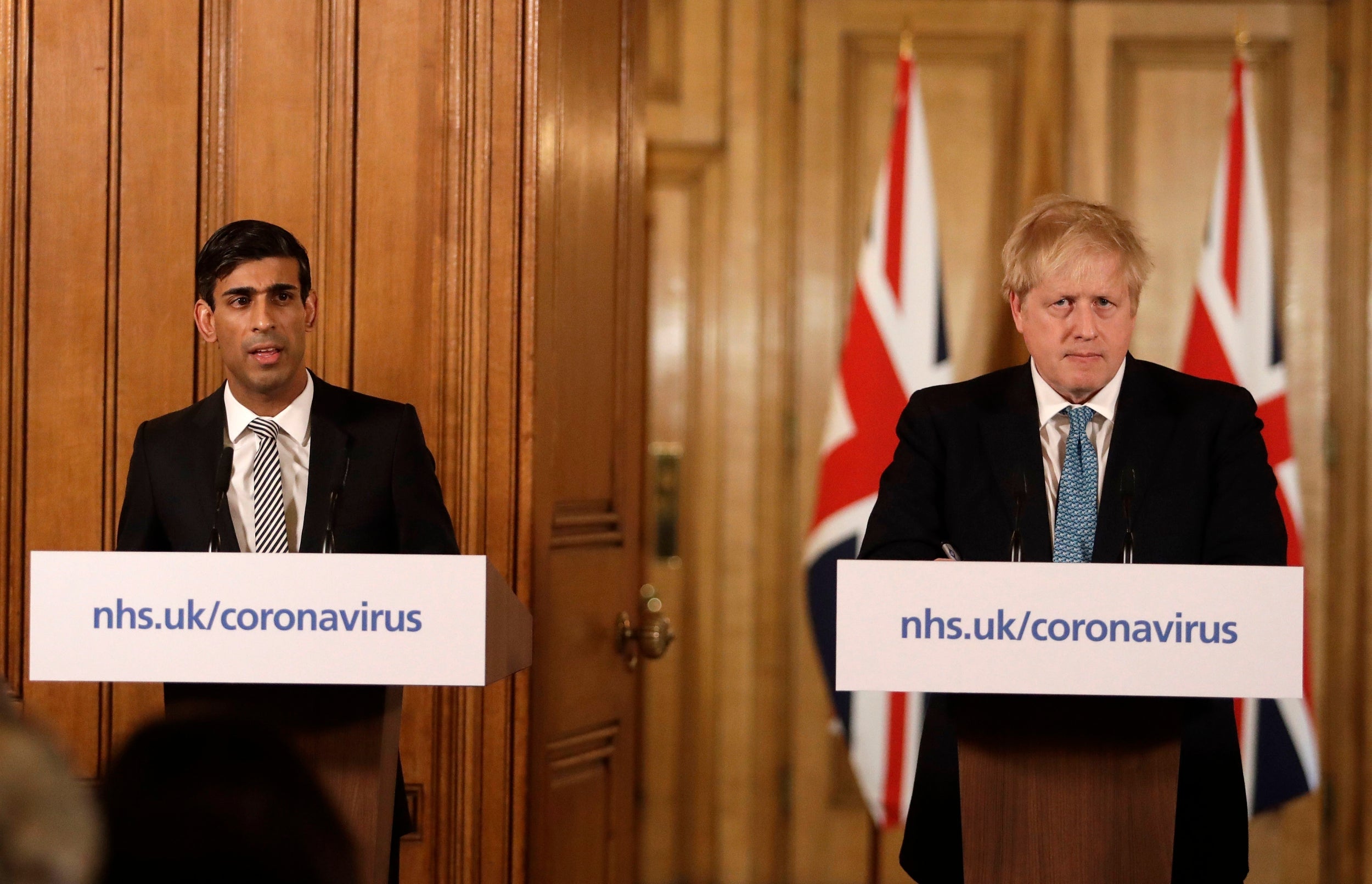Boris Johnson has another no-cost option to soften the blow of coronavirus – delaying Brexit
Editorial: The crisis is unlikely to have disappeared by the end of this year – and this is no time to contemplate delays to the delivery of vital medical supplies and food

Just as the government was forced by the pace of events to intensify its clinical and public health response to the coronavirus crisis, so too has its economic response had to be greatly expanded.
If, as the chancellor has pledged, the response has to be “at scale”, then that response will need to be under constant review to ensure it keeps up both with this unprecedented economic shock and shifts in policy on the public health side.
Indeed the two are related: when the prime minister asked people to “avoid pubs, clubs, theatres and other such venues” and urged people to cut down on travel, then no one should be surprised that many enterprises saw an immediate precipitate drop in custom. Some firms will go bust in days or weeks. It was unfair of him to place them in such a position, so the woeful assurance to the retail, hospitality and leisure sector was especially welcome.
Nothing like this has been seen since the Second World War, and the government has to take responsibility for the consequences of its necessary precautions against the spread of coronavirus.
Businesses and consumers deserve as much reassurance as possible that the state will be there to support them during such catastrophic times.
So the chancellor was right to announce a further series of initiatives within a week of his Budget, itself a bold statement of intent, even if some should have been announced then. “At scale” at the moment amounts to some £330bn in loan guarantees and an extra package of direct support to businesses of £20bn. This is in line with the kind of intervention promised by the French and Spanish governments, at the equivalent of about £250bn and £180bn in state guarantees for the loans banks are being asked to make to struggling businesses. It also comes after the world’s central banks injected trillions of dollars into the financial system, keeping credit cheap. Relaxation of regulations should also help the supermarkets maintain supply chains.
However, many firms will find it difficult to repay massive new debts next year – postponing rather than solving the financial crisis.
The chancellor was well aware of those most vulnerable in financial terms to the emergency – casual workers in the gig economy, the self-employed, people already in financial difficulties on universal credit, and anyone facing eviction for non-payment of rent or mortgage repayments. Although he is promising further action, he shamefully missed this opportunity to help renters at the same time as he offered home owners a three-month mortgage holiday. He also failed to announce any improvement in the rate and eligibility of statutory sick pay. That will not help anyone trying to do the right thing and self-isolate.
The best way to keep families solvent is to keep businesses alive when their revenues have dried up. The chancellor is offering more help in keeping their costs down and in supporting the banks as they extend their loans and overdrafts to companies. In effect, the government has to stand behind the biggest bridging loan in British history.
Old shibboleths about “moral hazard”, the national debt and the reach of the state have to be set aside at such a moment. The only limits on the extent of the state’s borrowing should be those unavoidable ones set by the market – the Treasury now has to find the funds from wherever it can and worry about how to repay the debts when the crisis has passed, as it surely will.
Quite apart from the moral imperative to rescue families from a disaster that is none of their making, experience shows that trying to revive an economy in a downward spiral is much more difficult and costly than preventing it going into a tailspin in the first place.
As the chancellor admits, much more may well need to be done as this crisis deepens – but there is one important step the government could announce now at no cost at all – to formally delay Brexit for a further year. Even the most hardline of Brexiteers concede that the economy was inevitably going to face disruption under any form of leaving the EU.
The coronavirus crisis may have abated by the end of this year, but it is unlikely to have disappeared, and this is no time to contemplate any delays to the delivery of vital medical supplies and food from continental Europe. The UK-EU trade talks have already been postponed twice, and there is no chance of a treaty being concluded and ratified by Christmas. To press ahead now with Brexit would be an unforgivable and completely avoidable blunder.
Join our commenting forum
Join thought-provoking conversations, follow other Independent readers and see their replies
Comments